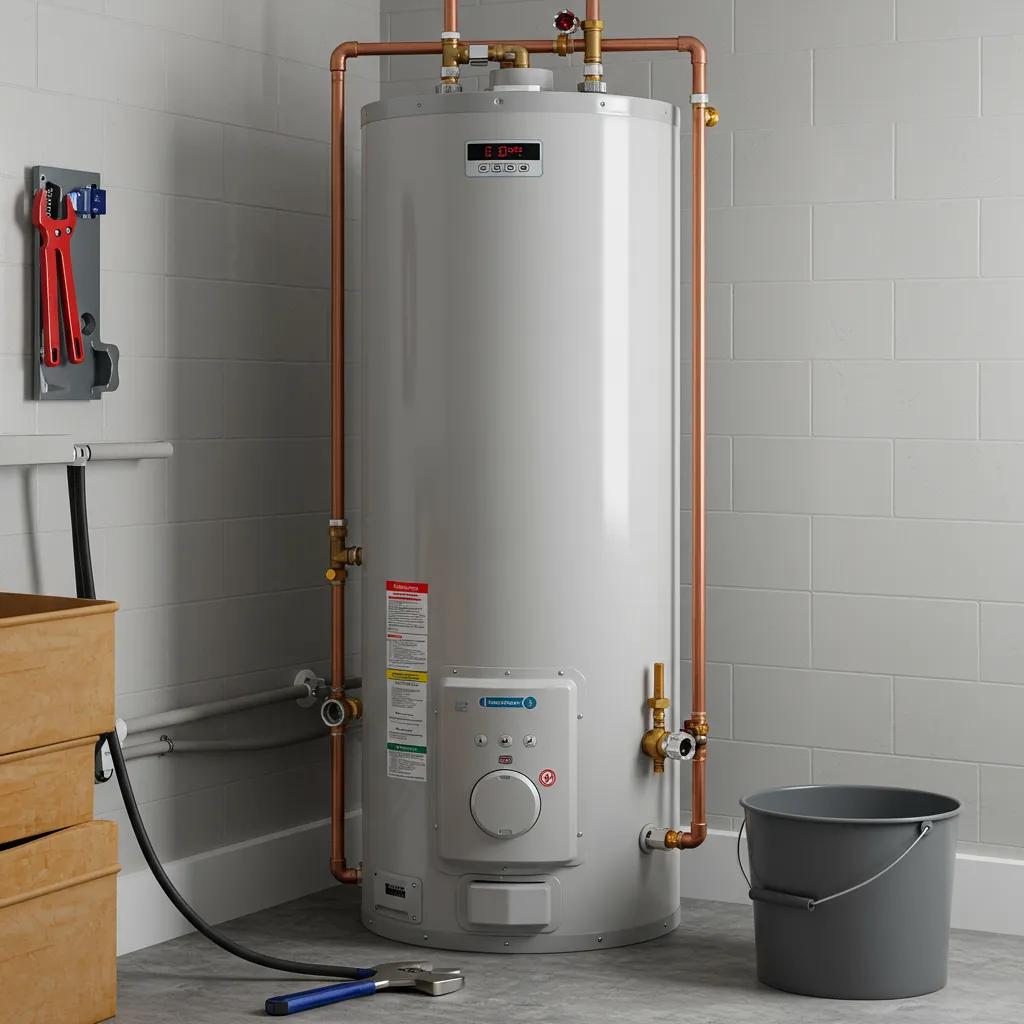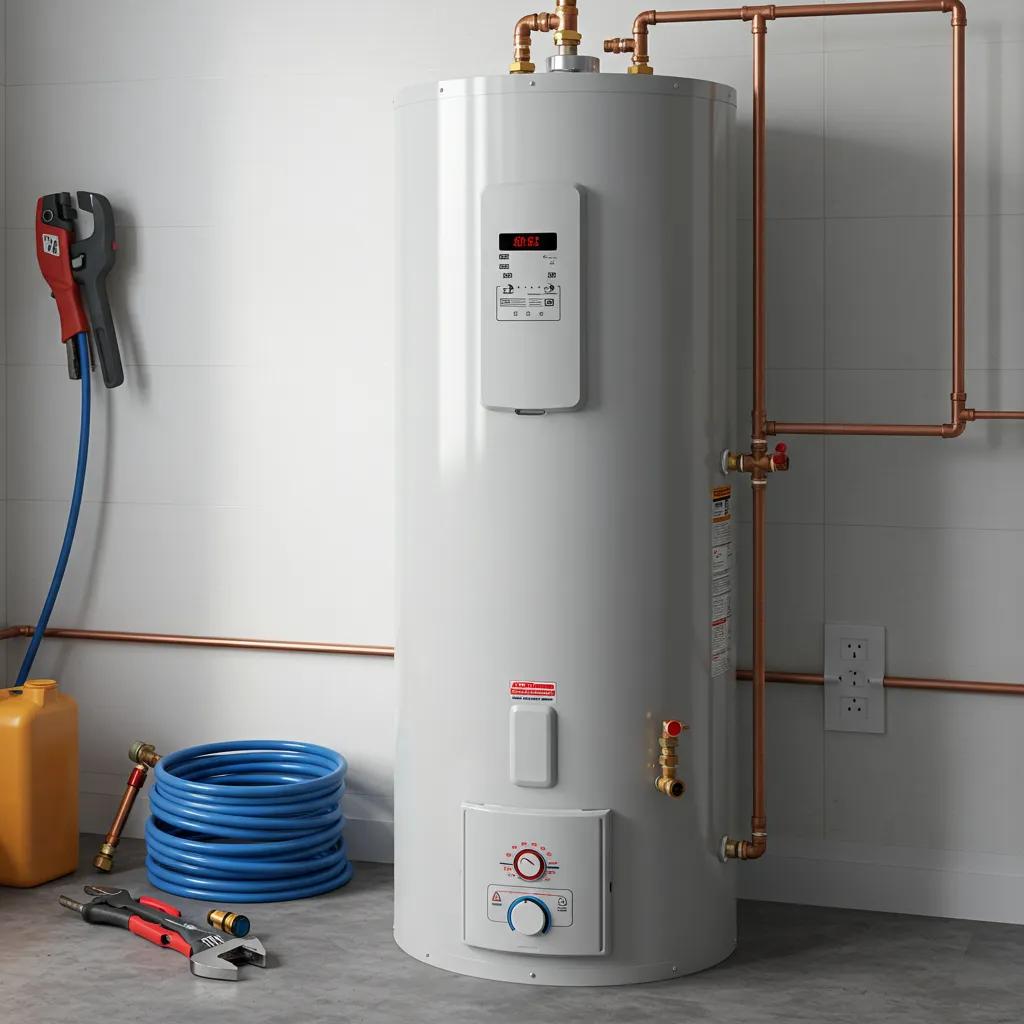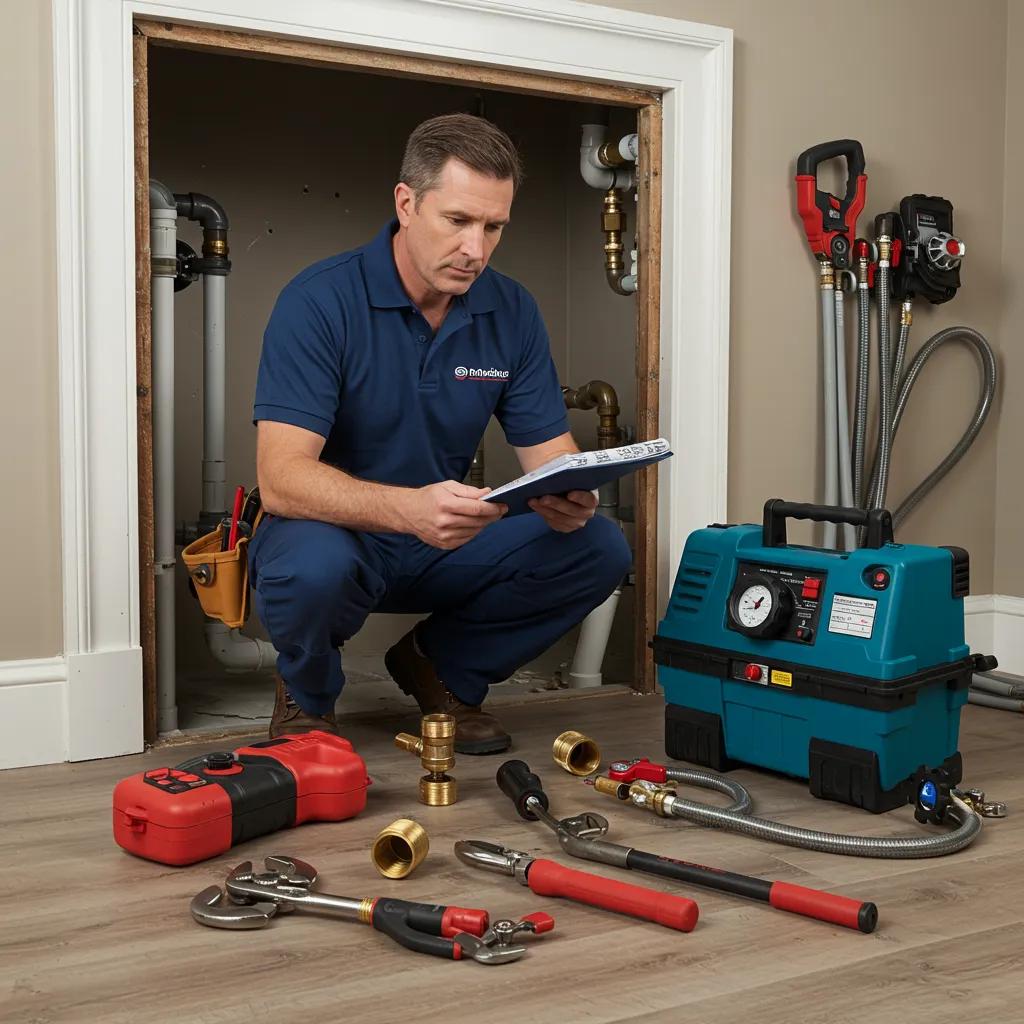Tankless vs Traditional Water Heaters: Key Differences You Need to Know for Plumbing in Erie, PA
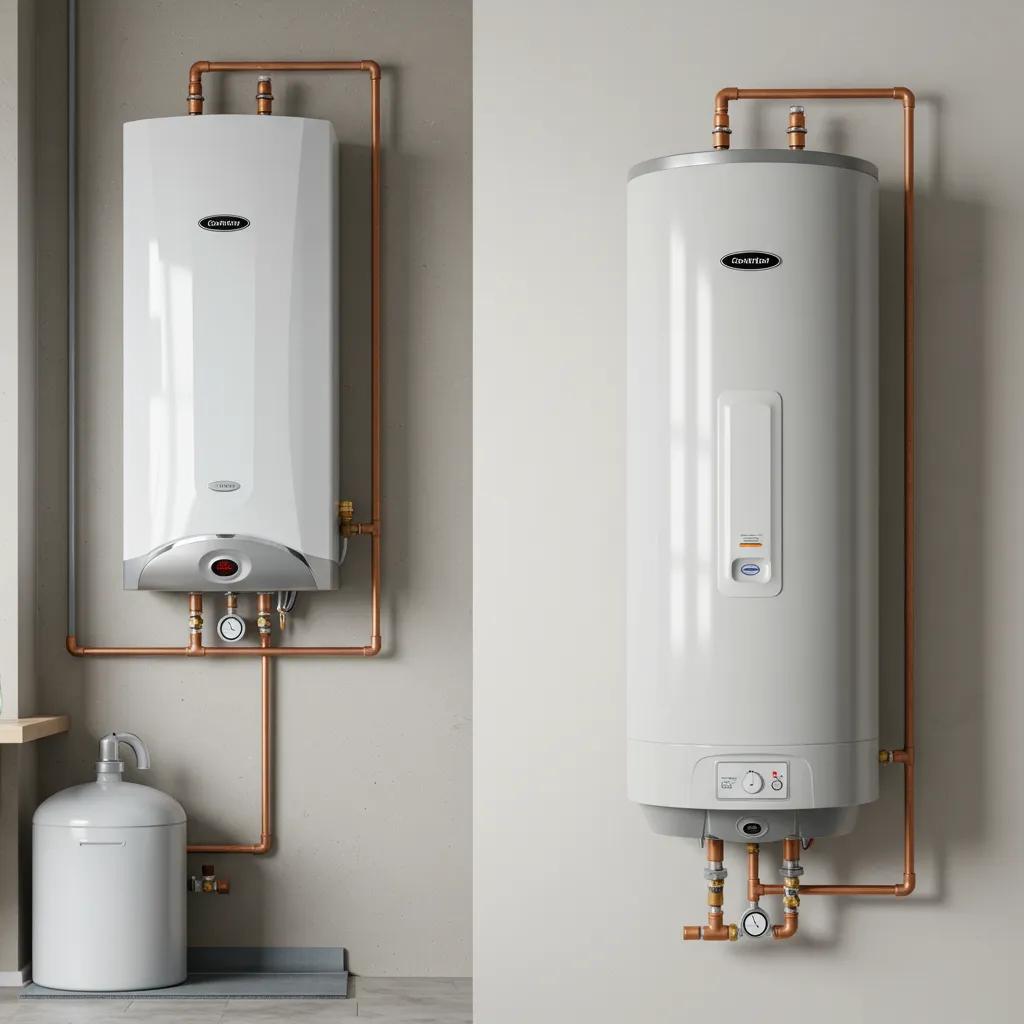
Choosing between a tankless water heater and a traditional storage-tank unit can be daunting for Erie, PA homeowners and business owners seeking reliable plumbing solutions. This guide examines how each system works, compares energy efficiency, cost, lifespan, space requirements, and maintenance needs, and highlights C. Carlin Plumbing’s expertise in installation, emergency repair, and free estimates. You’ll learn the core operational differences, pros and cons of each type, local installation ranges, decision factors for residential and commercial properties, and simple maintenance tips that extend equipment life. By the end, you’ll understand which water heater aligns with your hot-water demand, budget constraints, and Erie’s climate, and why C. Carlin Plumbing—serving Erie County since 1993 with 150 combined years of technician experience—stands ready to support your project.
What Are the Main Differences Between Tankless and Traditional Water Heaters?
Tankless water heaters heat water on demand via a high-efficiency heat exchanger, supplying endless hot water only when needed and eliminating standby heat loss. Traditional water heaters store and continually reheat a fixed volume (usually 40–80 gallons) in an insulated tank, providing a limited supply that can run out. On-demand heating offers compact size and energy savings, while storage systems boast simpler installation and lower upfront cost. Understanding these fundamental mechanisms sets the stage for comparing efficiency, longevity, installation footprint, and maintenance requirements in Erie’s plumbing environment.
How Does a Traditional Water Heater Work?
A traditional water heater uses an insulated steel or glass-lined tank to store heated water. Gas burners or electric immersion elements heat incoming cold water, maintaining temperature around 120–140°F. Thermostats control cycling, firing heating sources when tank temperature drops below set points. Stored hot water is delivered through supply lines until capacity is exhausted, after which users experience a “cold-water sandwich” until the tank reheats. The design is straightforward, reliable, and familiar to plumbers, but continuous reheating leads to standby heat loss and energy waste, factors Erie homeowners weigh when examining operating costs.
How Does a Tankless Water Heater Provide Hot Water on Demand?
A tankless water heater uses a flow sensor to detect water movement and engage a gas burner or electric coil, instantly heating water as it passes through a compact heat exchanger.
Flow rates of 2–5 gallons per minute deliver continuous hot water without a storage buffer, so multiple outlets may require parallel units or larger models. This on-demand mechanism eliminates standby loss entirely and supplies hot water indefinitely, ideal for households with varying demand patterns. Installation involves venting adaptations, upgraded gas lines or electrical circuits, and precise sizing to match peak flow requirements in Erie’s climate.
What Are the Energy Efficiency Differences Between Tankless and Traditional Water Heaters?
Both systems convert fuel into hot water, but tankless units avoid standby loss by activating only during use. For daily consumption under 41 gallons, tankless heaters achieve 24–34% greater energy efficiency; at 86 gallons, savings range 8–14%. Traditional tanks operate at 60–75% efficiency due to constant reheating and heat escape through insulation.

These ps translate to lower monthly energy bills for on-demand systems, especially in moderate-usage scenarios, and align with ENERGY STAR guidelines for energy-efficient appliances.
How Do Lifespans Compare Between Tankless and Traditional Water Heaters?
Tankless units typically last 20+ years, owing to reduced corrosion risk without a standing water reservoir. Traditional storage heaters average 10–15 years before tank failure or efficiency deterioration from sediment buildup. Ongoing professional maintenance—descaling for tankless and periodic flushing for tanks—preserves performance and extends service life. Greater longevity makes tankless an appealing long-term investment for Erie County properties.
What Are the Space and Installation Differences?
Traditional tanks measure roughly 2–3 feet wide and deep, requiring a dedicated closet or basement corner. Installation is generally straightforward, connecting existing gas or electric lines and venting through chases or chimneys.
Tankless units mount on walls with a footprint under 2 square feet, freeing utility room space. However, they often need larger gas lines, specialized venting, and electrical upgrades, elevating installation complexity. Choosing between compact design and simpler retrofit influences decisions for space-constrained Erie residences and businesses.
What Are the Pros and Cons of Tankless Water Heaters?
Tankless water heaters deliver continuous hot water, energy savings, and a smaller physical footprint, but come with higher upfront costs and specialized maintenance. Evaluating these trade-offs helps determine suitability for your hot-water demand and budget in Erie, PA.
What Are the Energy Savings and Environmental Benefits of Tankless Water Heaters?
Tankless systems eliminate standby heat loss by heating water only when needed, reducing annual fuel consumption by up to 34% for low-volume use. This efficiency lowers greenhouse gas emissions relative to storage tanks, supporting sustainable building practices. Modern condensing models reclaim exhaust heat for additional savings, making tankless units an eco-friendly choice that aligns with ENERGY STAR recommendations and local incentives for energy-efficient appliances.
What Are the Upfront Costs and Installation Considerations for Tankless Units?
Tankless water heater installation in Erie typically ranges from $2,000 to $7,400, including the unit, labor, gas-line or electrical upgrades, and venting modifications. Exact cost depends on unit capacity, fuel type, and existing infrastructure. While the initial investment exceeds traditional system pricing, long-term energy savings and extended lifespan often justify the premium for homeowners and property managers weighing lifetime operating expenses.
What Maintenance Does a Tankless Water Heater Require?
Periodic descaling every 6–12 months prevents mineral buildup in the heat exchanger, preserving flow rates and efficiency. Licensed technicians from C. Carlin Plumbing perform thorough inspections, adjust burner assemblies, and verify vent integrity to maintain peak performance. This proactive service regimen safeguards warranties and minimizes unexpected downtime for busy Erie households and commercial operations.
Are There Any Limitations or Drawbacks to Tankless Water Heaters?
Tankless units have a maximum flow rate per device, which may limit simultaneous use of multiple fixtures during peak demand. Cold-water sandwich effects can occur if flow sensors cycle the burner too slowly. Higher initial cost and installation complexity require careful planning and professional assessment. Despite these considerations, proper sizing and expert installation address most drawbacks effectively.
What Are the Advantages and Disadvantages of Traditional Water Heaters?
Traditional storage-tank water heaters offer familiar technology, lower initial cost, and simple installation but incur standby heat losses, larger space demands, and shorter lifespans. Assessing these factors clarifies whether a conventional approach meets your hot-water needs.
Why Are Traditional Water Heaters More Affordable Initially?
Conventional tanks cost $1,000 to $5,400 for replacement in Erie, including the unit, standard venting, and basic labor. Existing gas lines and wiring often require minimal modification, reducing upfront expenditure. This affordability appeals to budget-conscious homeowners seeking immediate hot-water solutions without extensive plumbing upgrades.
What Are the Energy Efficiency and Operating Cost Challenges?
Storage tanks maintain water temperature around the clock, consuming additional energy to counteract heat loss through insulation. Standby heat loss can account for up to 20% of annual energy usage, raising monthly utility bills. Insulation improvements and higher EF (energy factor) ratings mitigate some waste, but cannot match on-demand heating efficiency.
How Does Maintenance for Traditional Water Heaters Work?
Flushing the tank annually removes sediment that accumulates at the bottom, preventing corrosion and improving heat transfer. Replacing the sacrificial anode rod every 3–5 years protects the inner lining from rust. These routine tasks extend equipment life and help avoid unexpected failures in Erie’s water with moderate mineral content.
What Are the Space Requirements and Hot Water Supply Limitations?
A standard 50-gallon tank occupies at least 4 square feet of floor space and stands 4–5 feet tall. Once the stored volume is depleted, users experience a delay until the burner or heating elements restore temperature. This limited supply may disrupt high-usage scenarios like simultaneous laundry and showering, a factor for larger households or commercial facilities.
How Much Does It Cost to Install or Replace Tankless vs Traditional Water Heaters in Erie, PA?
Local installation costs reflect labor rates, permits, and regional materials pricing. Comparing long-term savings against upfront investment helps property owners calculate return on investment for each system type in Erie’s service area.
What Is the Typical Installation Cost Range for Tankless Water Heaters in Erie?
Erie homeowners can expect to pay between $2,000 and $7,400 for tankless water heater installation, including the unit, specialized venting, gas-line or electrical upgrades, and labor. Higher-capacity condensing models trend toward the upper end of this range, while point-of-use or smaller units reduce expenses.
How Much Does Traditional Water Heater Installation or Replacement Cost Locally?
Replacing a standard storage tank water heater in Erie costs approximately $1,000 to $5,400. Lower-end units and straightforward replacements with existing hookups fall near $1,000, whereas larger tanks or gas-to-electric conversions increase total expense. Permit fees and minor plumbing adjustments factor into the overall budget.
What Are the Long-Term Savings and Return on Investment for Each Type?
Although tankless units cost more initially, energy savings of 10–30% and a lifespan exceeding 20 years often yield payback periods of 5–10 years. Traditional tanks recoup smaller savings over shorter lifespans, typically 10–15 years, leading to more frequent replacements and cumulative expense. Property owners evaluating lifetime costs may find tankless systems deliver superior value over multiple decades.
Are There Local Rebates or Incentives for Energy-Efficient Water Heaters in Erie, PA?
Erie County residents may qualify for state and federal incentives, including ENERGY STAR rebates and tax credits for high-efficiency equipment. Utility providers occasionally offer rebates on qualifying tankless models. Checking current programs through state energy offices or certified installers can unlock additional savings on upfront costs.
How Do You Choose the Right Water Heater for Your Erie Home or Business?
Selecting the ideal water heater requires balancing household or commercial demand patterns, budget constraints, space availability, and regional climate factors.
What Factors Should Homeowners Consider When Selecting a Water Heater?
Homeowners should evaluate daily hot water usage, number of occupants, peak demand periods, available installation space, and fuel type preferences. Budget for upfront investment versus long-term energy and maintenance costs, and consider environmental impact if reducing energy consumption is a priority in Erie’s moderate climate.
What Are the Key Considerations for Commercial Water Heater Applications?
Businesses such as restaurants, salons, or multi-unit complexes require large or multiple units to sustain peak flow rates. Space planning for wall-mounted tankless systems or strategic placement of storage tanks impacts workflow and safety compliance. Energy efficiency incentives and zoning regulations also influence commercial equipment choices.
How Does Erie’s Climate Influence Water Heater Choice?
Colder groundwater temperatures in winter increase the energy required to reach set hot water temperatures, affecting unit sizing and efficiency. Tankless systems must be sized to accommodate lower inlet temperatures, while storage tanks benefit from improved insulation to reduce standby loss in cooler basements.
What Is C. Carlin Plumbing’s Expert Recommendation for Erie Customers?
C. Carlin Plumbing advises scheduling a complimentary in-home assessment to analyze your hot water demand, existing infrastructure, and budget. Their licensed technicians draw on 150 years of combined experience to recommend the right water heater type, model, and capacity, ensuring optimized energy efficiency and cost-effective installation.
What Maintenance Tips Can Extend the Life of Your Water Heater?
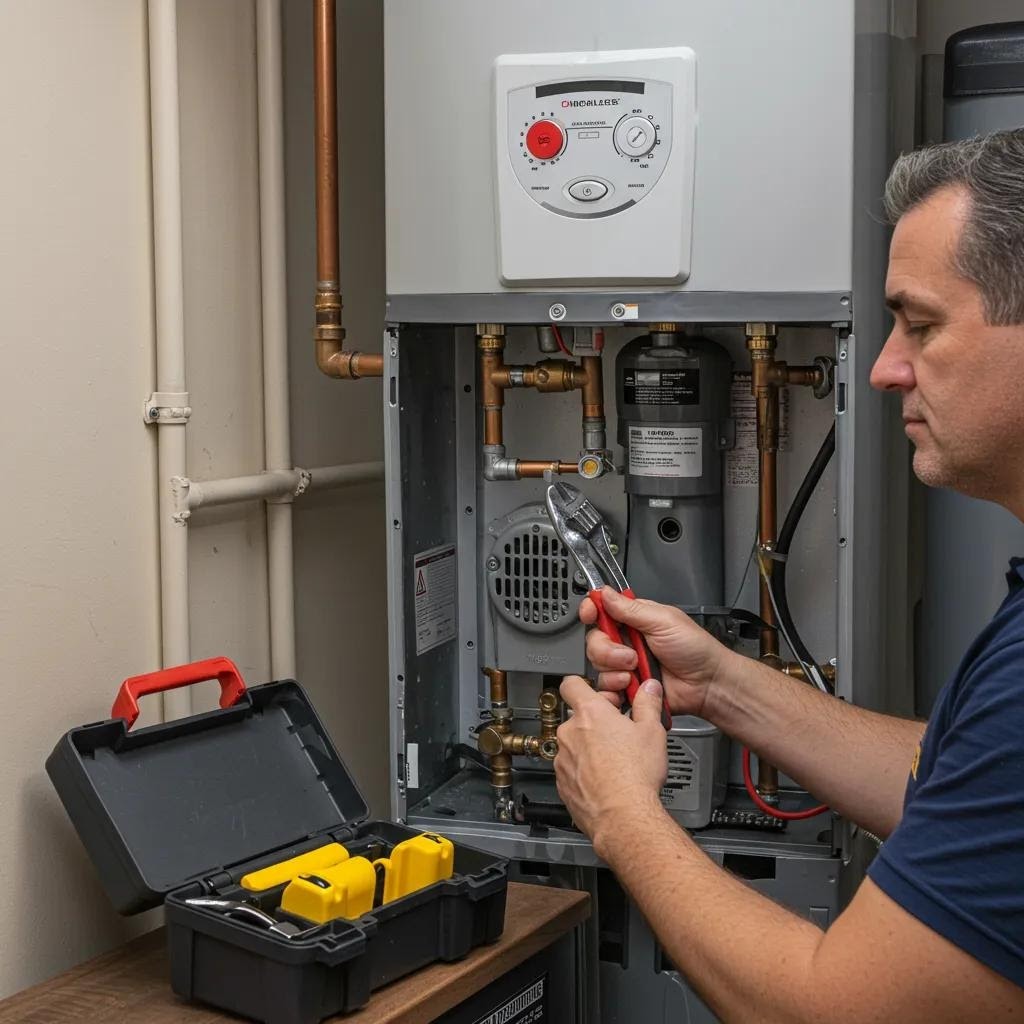
Consistent upkeep prevents premature failures, preserves efficiency, and extends equipment lifespan. Simple tasks paired with professional inspections maintain reliable hot water year after year.
How Should You Maintain a Traditional Water Heater?
Flush the tank fully every 12 months to remove sediment, improving heat transfer and reducing corrosion. Inspect and replace the sacrificial anode rod every 3–5 years to guard against tank rust. Check pressure relief valves for proper operation and tighten fittings to prevent minor leaks from escalating.
What Maintenance Is Needed for Tankless Water Heaters?
Descale the heat exchanger every 6–12 months if local water hardness is moderate to high. A licensed technician from C. Carlin Plumbing conducts a vinegar or commercial descaling flush, inspects burners, and confirms vent integrity. Keeping sensors and filters clean ensures uninterrupted flow and heating performance.
When Should You Call Professionals for Water Heater Maintenance or Repair?
Schedule professional maintenance at the first sign of decreased hot water flow, unusual noises, or error codes on digital displays. Annual inspections catch minor issues before they escalate and maintain warranty compliance. Emergency repair services handle leaks, burner failures, and vent obstructions efficiently.
How Does C. Carlin Plumbing Support Water Heater Maintenance in Erie, PA?
C. Carlin Plumbing offers same-day service, 24/7 emergency repair, and comprehensive maintenance plans tailored to tankless and traditional systems. Their transparent pricing, free estimates, and quality warranties deliver peace of mind for homeowners and businesses throughout Erie County.
What Are Common Questions About Tankless vs Traditional Water Heaters?
Erie property owners frequently ask about efficiency, lifespan, supply capacity, installation cost, and comparative pros and cons when evaluating water heater options.
Are Tankless Water Heaters More Energy Efficient Than Traditional Ones?
Yes, tankless water heaters eliminate standby heat loss by heating water only when needed. They achieve 24–34% energy savings for daily use under 41 gallons and 8–14% savings at higher volumes compared to storage-tank systems.
How Long Do Tankless Water Heaters Last Compared to Traditional Models?
Tankless units typically exceed 20 years of service life with proper maintenance, while traditional storage tanks generally last 10–15 years before requiring replacement due to corrosion or efficiency loss.
What Is the Difference in Hot Water Supply Between the Two Types?
Tankless heaters deliver unlimited hot water on demand up to their flow rate capacity, whereas storage tanks supply a finite volume before requiring recovery time to reheat the stored water.
How Much Does It Cost to Install a Tankless Water Heater in Erie, PA?
Erie installation costs for a tankless unit range from $2,000 to $7,400, depending on model capacity, fuel type, and necessary gas-line, electrical, or venting upgrades. Higher-end condensing models and complex installations trend toward the upper range.
What Are the Pros and Cons of Each Water Heater Type?
- Tankless Water Heater Pros: Endless hot water, space-saving, longer lifespan, energy efficient Cons: Higher upfront cost, specialized maintenance, flow rate limits
- Traditional Water Heater Pros: Lower installation cost, simpler retrofit, familiar technology Cons: Standby heat loss, larger footprint, shorter lifespan
Assessing these advantages and drawbacks against your usage patterns and budget guides the optimal choice for Erie properties.
Every water heater choice carries trade-offs between cost, efficiency, space, and longevity. By understanding these differences and leveraging C. Carlin Plumbing’s 31+ years of local expertise—providing honest pricing, rapid response, and certified technicians—you can secure a reliable hot water solution tailored to your Erie, PA home or business. Contact C. Carlin Plumbing today to request a free estimate and ensure your water heater installation or repair is handled by proven local professionals.

